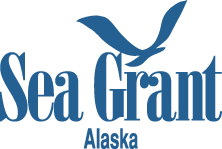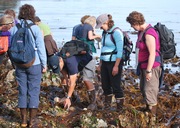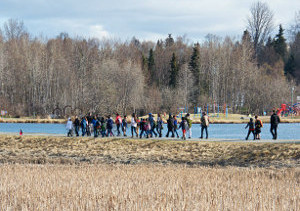Formative Assessment Probes
The brief, formative assessment resources included with these units are called "assessment probes." They are called "probes" because they are designed to probe and uncover student thinking. Teacher and researcher Page Keeley has written extensively about the probes as part of the Curriculum Topic Study approach to analyzing science and mathematics topics. See the Curriculum Topic Study website for more information.
These probes are designed to be used diagnostically and formatively. They are intended to help you to tap into students' thinking about particular science topics -- topics that are identified by the National Science Education Standards as significant and developmentally appropriate for the target age level of the unit. While they are intended to sample students' thinking (and to probe for common misconceptions), they are NOT intended to measure what students have learned as a result of the unit content. We encourage you to use these tools--and to develop your own--to better understand each student's development as a learner, and to modify your teaching accordingly.
Ongoing assessment throughout the investigations is important for several reasons. It can reveal when students are confused or have misunderstandings, need more time to investigate, or need more explanation. You can tailor the investigations to meet the needs of your students, and change direction whenever necessary. Frequent assessment does not have to time-consuming or tedious. A quick assessment can give you a lot of information about student comprehension and understanding.
Other Formative Assessment Ideas:
Science Notebooks. If you have asked students to reflect on an investigation, or respond to a question prompt, a quick look at these notebook entries can give you a good idea of where students are in their understanding of a topic. Some prompts that students can respond to in their notebooks are:
What questions do you need to have answered to fully understand where we are going in this investigation?
List three things you learned today, that you didn’t know before.
What was the most important point of our activity in class today?
What was the most surprising idea or concept?
What was the muddiest point of the activity?
What did you learn about _____ today?
How can I help you learn the concept that is giving you the most trouble?
On a scale of 1 through 5 (or 10), with 5 (or 10) being the highest level, how would you rate your understanding of the concepts introduced in today’s activity?
3-2-1 Response. As a quick and useful assessment tool, try using a 3-2-1 response with your students. There are several varieties of this strategy. Students can write responses in their science notebooks, then you can quickly check for understanding.
List 3 new facts or words that you have learned today, 2 ideas or concepts that are new to you, and 1 question you still have.
5-3-1 Response. On your own, identify 5 key ideas, principles or facts. In pairs, share your list and come up with your top 3. At your table, or with another pair of students, identify 1 “MVP” (most valuable point) from today. If you don’t want to use science notebooks for the above questions, students can write their response on a piece of scrap paper and give them to you for review.
Quick Check. Ask students a question to respond to and have everyone write their answer on a piece of paper (or small chalkboard or dry-erase board). They can then hold up their answer at the same time, for you to see.
Multiple Choice Quick Check. Each student is given (or students can make) a set of four cards labeled A, B, C, and D. Ask a multiple choice question, giving students all options. Students each hold up the card that corresponds with the correct answer. At a glance, you can see which students may not fully understand the concept. If students do not have cards, use the numbers 1, 2, 3, and 4 as your options, and have students hold up the number of fingers that corresponds to the correct answer.
For more information and ideas about formative assessment, check these resources:
The Concept of Formative Assessment Carol Boston
The Value of Formative Assessment
Performance Assessment
These units have been designed around essential questions and enduring understandings. The essential question(s) frame the unit. The enduring understandings are what we want students to walk away with at the end of the unit. We have purposely excluded paper and pencil tests in the evaluation phases of the investigations. Instead, we have included activities/performances that allow students to show evidence that they can explain and/or apply their knowledge and understanding in authentic ways. Each unit of the Alaska Seas and Watersheds curriculum has a culminating activity that provides an opportunity for students to demonstrate understanding.
For more information about authentic or performance assessment, take a look at these resources:Association of Supervision and Curriculum Development (ASCD)
Articles and videos related to performance assessment
Authentic Assessment Toolbox
The Case for Authentic Assessment by Grant Wiggins
For help developing performance assessment inquiry tasks, scoring rubrics, anchor papers along with tips to make it more manageabl mplement new standards and this approach to assessment. see Science Exemplars.








